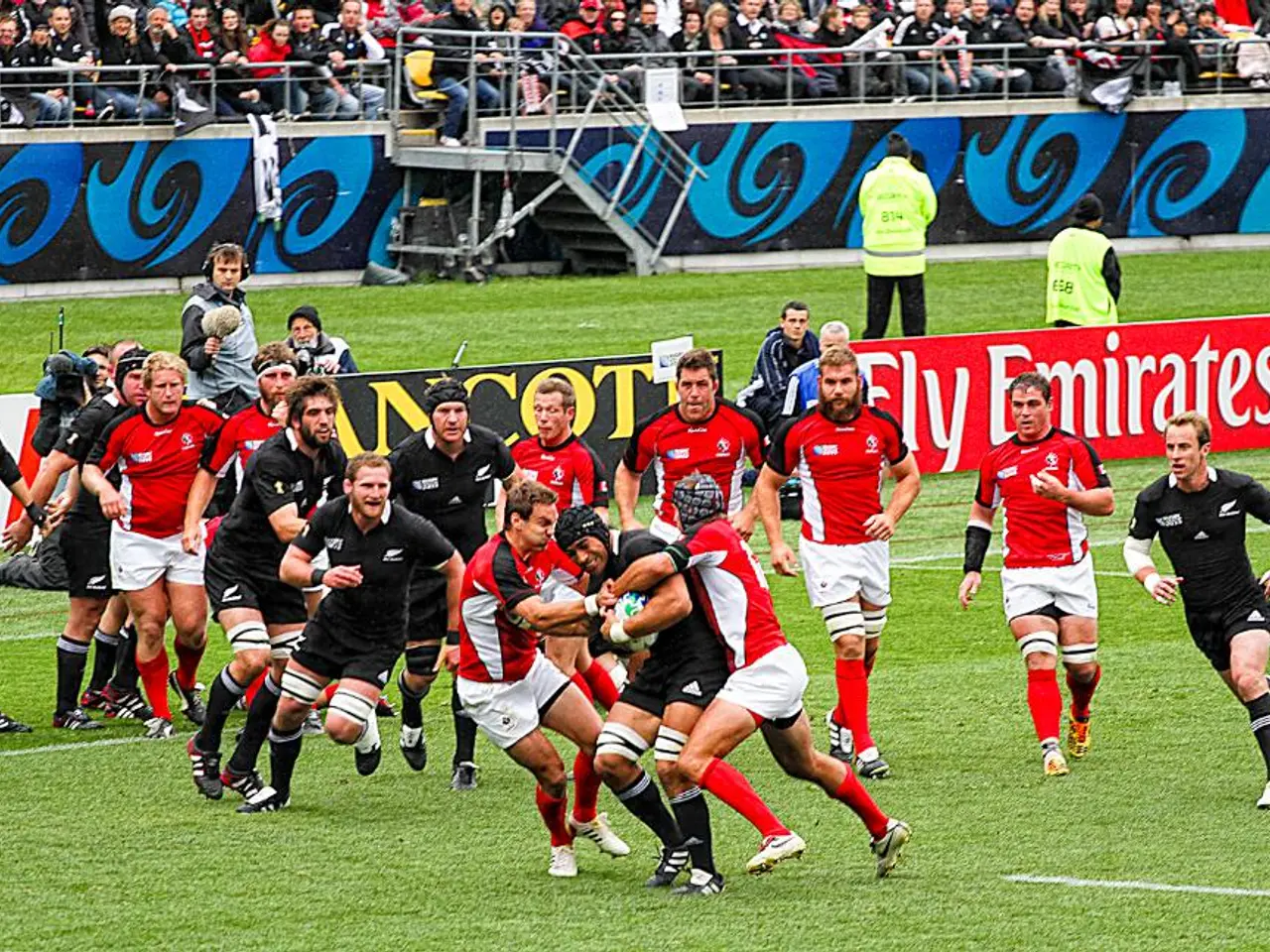Differentiating between Overtraining and Overreaching: Crucial Knowledge for Every SEHS Student
In the world of sports, maintaining a balance between hard training and smart recovery is crucial for optimal performance. Two key concepts that athletes and coaches should be familiar with are overreaching and Overtraining Syndrome (OTS).
Overreaching happens when an athlete exceeds their body's ability to recover consistently, leading to temporary fatigue or a short-term performance decline. This state, however, is usually recoverable within days or weeks, often leading to supercompensation. Overreaching can be divided into two types: Functional Overreaching (FOR) and Non-functional Overreaching (NFOR).
Functional Overreaching (FOR) is a planned, brief period of intensified training that leads to a temporary drop in performance but, after recovery (days to a week), results in improved fitness and performance. It is considered a positive training strategy. On the other hand, Non-functional Overreaching (NFOR) is a more severe form where fatigue and performance decline persist for weeks, with no subsequent fitness gain. It requires careful management to avoid progression.
Overtraining Syndrome (OTS) is a much more serious, chronic condition caused by excessive training combined with inadequate recovery over a prolonged period (weeks to months). It results in profound fatigue, decreased performance, psychological symptoms, and can sideline an athlete for months or longer. Recovery is slow and complex, often requiring lifestyle and medical interventions beyond rest.
The key difference between overreaching and OTS lies in severity, recovery time, and impact on athlete performance. Overreaching can be part of an effective training program to elicit gains if followed by sufficient recovery, whereas NFOR and OTS impair performance seriously, increase the risk of injury, cause burnout, and extend recovery times dramatically, potentially disrupting entire training seasons and competitive cycles.
To manage these conditions effectively, it's essential to monitor symptoms such as chronic fatigue, sleep disturbance, and elevated heart rate, and to incorporate scheduled recovery weeks, proper nutrition, hydration, and regular recovery markers into training regimens. RevisionDojo, an educational platform, provides resources such as flashcards, practice questions, and performance modules to help students understand these concepts and apply them in their IA designs and simulated scenario questions.
In summary:
| Aspect | Overreaching | Overtraining Syndrome (OTS) | |---------------------------|----------------------------------------|---------------------------------------------| | Duration | Short-term (days to weeks) | Long-term (weeks to months) | | Performance Effect | Temporary drop, then supercompensation (FOR) or prolonged fatigue (NFOR) | Chronic decline with no improvement | | Recovery Time | Days to weeks | Weeks to months, often complex | | Severity | Mild to moderate fatigue | Severe fatigue, psychological symptoms | | Role in Training | Can be strategic and beneficial (FOR) | Negative; detrimental to athlete health | | Causes | Increased training volume/intensity, insufficient rest | Prolonged excessive training + inadequate recovery + external stressors |
Proper management involves balancing hard training with smart recovery strategies like rest, nutrition, sleep, and stress reduction to avoid slipping from beneficial overreaching into harmful overtraining.
- To reinforce understanding of overreaching, overtraining syndrome, and related health-and-wellness terms, students can utilize flashcards and practice questions provided by RevisionDojo.
- For individuals interested in incorporating fitness-and-exercise and sports-related science into their IA designs, the question bank available on RevisionDojo may offer valuable insights and simulation questions.
- In the realm of sports, learning about overreaching and overtraining syndrome can aid athletes and coaches in implementing effective training strategies, and one way to prepare for this knowledge is by supplementing their study with flashcards and practice questions found in a question bank.





